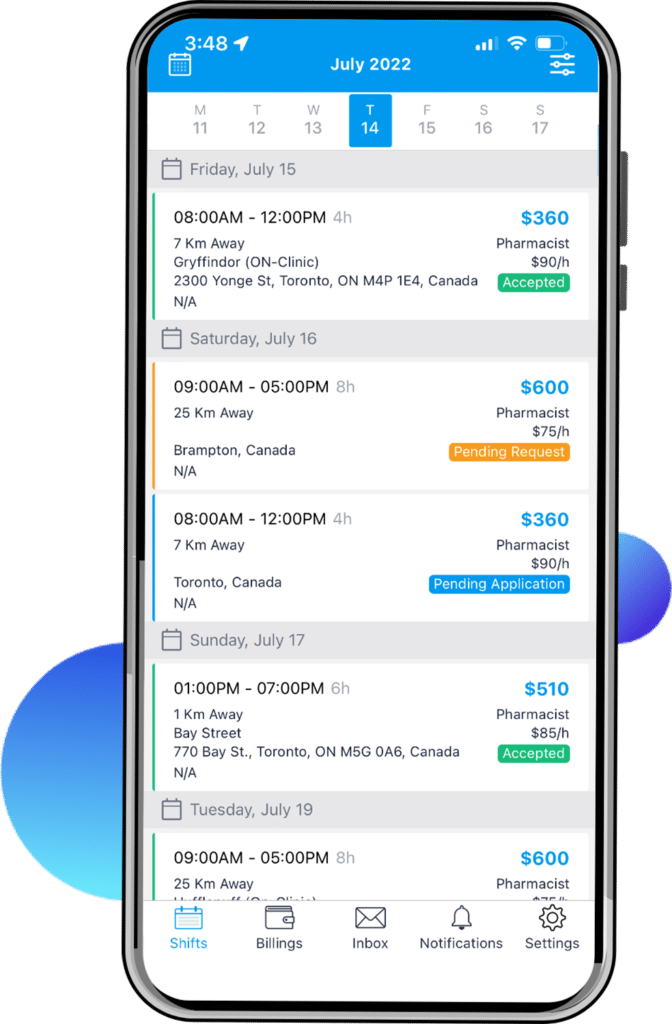
Which Medical Careers Are Most in Demand?
Trending in-demand medical careers include pharmacists, CT techs, EMTs, and more. Compare salaries and duties to choose the best healthcare job.

Acquiring and owning a pharmacy can be a lucrative and rewarding business venture. However, it requires significant investment, commitment, and knowledge of the pharmaceutical industry to succeed. If you are interested in pharmacy ownership, read on to learn about the benefits and considerations of owning a pharmacy, including the cost of starting, potential profits, licensing requirements, and more.

Pharmacy ownership involves managing and operating a business that dispenses medication and provides health-related services to customers. When acquiring and owning your own pharmacy, you become responsible for the entire operation, including complying with state and federal regulations, maintaining accurate and detailed records, employing licensed pharmacists, and training your staff properly. You also need to be aware of changing industry standards, market trends, and emerging technologies to help you provide high-quality care to your customers.
It’s essential to understand everything that goes into acquiring and owning a pharmacy before diving in to be sure it’s something you’re prepared to take on.
Acquiring and owning a pharmacy is a good option for individuals passionate about healthcare, serving their community, and providing quality patient care and entrepreneurship. If this sounds like you, consider owning your own pharmacy. As a prospective pharmacy owner, you should have a deep understanding of the industry, excellent managerial skills, and be willing to invest time, money, and effort into the business.
While pharmacy ownership isn’t for everyone, you can make it happen with a strong willingness to succeed and a plan to help you do it.
Buying an independent pharmacy requires high start-up costs. These funds are necessary to cover leasing or purchasing commercial space, buying equipment, stocking inventory, hiring staff, and obtaining required licenses and permits.
On the other hand, you could consider buying an existing pharmacy, which is less costly but can be risky since you’re taking on someone else’s liabilities and assets. As you consider buying a pharmacy, research both options to decide which would be best for you.
Financing a pharmacy can be challenging, but various funding options are available if you need them, including traditional bank loans, Small Business Administration (SBA) loans, and grants. You could also consider partnering with investors, joining a franchise, or seeking crowdfunding to raise capital for buying a pharmacy
As a pharmacy owner, you must maintain a positive cash flow and profitability to maintain your pharmacy and ensure you can provide quality services to your customers. To manage your cash flow and profitability, make sure you are:
You can also invest in pharmaceutical technology and marketing strategies to attract customers and help you stay competitive.
Acquiring a pharmacy can be extremely rewarding, but it is an expensive venture. Start-up costs can range anywhere from $880,000 to $1,800,000, though the cost depends on several factors, including:
Other cost factors could include:
As an owner, you could earn anywhere from $400K - $700K, depending on location, and the pharmacy could profit around $4 million annually. Several factors can influence your profit, including the number of prescriptions filled, the type of services provided, overhead costs, front-end sales, and inventory costs.
One of the most significant factors in acquiring and owning a pharmacy is filling prescriptions, meaning the script count is critical to your profitability. The more prescriptions you fill, the more revenue you’ll bring in.
If you offer services beyond filling prescriptions, like medication therapy management, immunizations, and health screenings, you can increase your revenue streams and stand out from your competitors.
Overhead costs such as rent, utilities, and staffing can significantly impact profitability. By using effective cost management and operational efficiency strategies, you can find ways to reduce overhead costs and improve profitability.
Front-end sales such as over-the-counter medications, health and beauty products, and medical supplies can contribute to the revenue of your pharmacy. Consider offering a diverse range of products, implementing competitive pricing, and engaging in effective marketing.
Acquiring and owning your own pharmacy means you are responsible for managing inventory and reducing costs. You’ll need to balance maintaining sufficient inventory levels and minimizing the risk of excess inventory, which can lead to spoilage and waste.
Pharmacy ownership requires compliance with various legal and regulatory requirements, including licensing, compliance with state and federal regulations, and insurance and liability considerations. When buying a pharmacy, you’ll be responsible for maintaining all the proper licensing.
Pharmacy licensing may vary by state but generally will include:
Part of pharmacy ownership is complying with state and federal regulations that govern the handling, dispensing, and sale of medications. The regulations cover record-keeping, drug disposal, and controlled substances. Failure to comply with these requirements and regulations can result in penalties, fines, or losing your pharmacy’s license.
When owning a pharmacy, you must have adequate insurance coverage to protect against potential liability claims. Liability risks include errors in dispensing medications, product liability claims, and general liability claims. Adequate insurance coverage can help protect your pharmacy’s assets and ensure you can continue operating in case of a liability claim.
The timeline for pharmacy ownership can vary based on several factors, including:
If you are proactive and diligent, you could have your pharmacy open in as little as six months. However, based on the above factors and allowing for probable delays, you can expect to go from buying an independent pharmacy to opening day in about a year.
There are a lot of considerations that go into owning a pharmacy, and you’ll need to weigh the pros and cons of pharmacy ownership to determine if it’s right for you.
If you aren’t sure you’re ready to acquire your own pharmacy yet but still want to make a difference in the industry, consider joining ShiftPosts. You can cover open shifts, help reduce understaffing, and increase your earning potential with the help of our convenient staffing platform. Contact us to learn more today.


Trending in-demand medical careers include pharmacists, CT techs, EMTs, and more. Compare salaries and duties to choose the best healthcare job.

The future of pharmacies may be looking at an increasing number of prescription deliveries, but brick-and-mortar pharmacies aren’t leaving anytime soon.

The ShiftPosts co-founders bring decades of expertise from across the healthcare industry, and understand the critical importance of efficient healthcare scheduling of staff.


The role of a pharmacy manager includes overseeing staffing, supplies, and ensuring the pharmacy meets state and federal regulations.

If you are considering per diem work for your pharmacist relief shifts, know what working per diem means, along with its benefits and downsides.
Available for Pharmacy Owners
and Pharmacy Professionals
